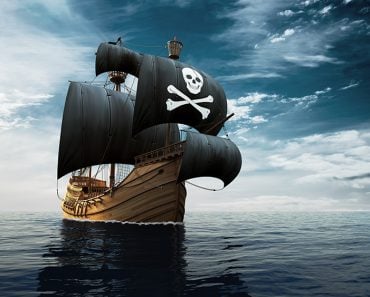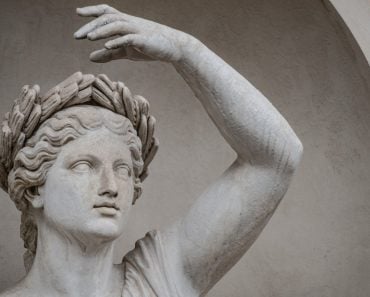The 14th century Ming Dynasty—influenced by land-centric views—halted maritime expeditions, isolating China via the 1434 Edict of Haijin.
The Ming Dynasty, which ruled China from 1368 to 1644, has often been characterized as a period of both magnificent cultural and technological achievements, as well as one marked by a significant shift towards isolationism. As historians delve deeper into the dynasty’s rich tapestry, one question persists: Why did the Ming emperors and their officials make the choice to isolate the Middle Kingdom from the broader world?
Recommended Video for you:
Historical Context: Early Ming Foreign Relations
To understand the Ming Dynasty’s eventual drift into isolation, it is essential to first examine the dynasty’s initial foreign policy stance. The early Ming emperors actively pursued an outward-looking policy.
The most celebrated manifestation of this was the voyages of the great Admiral Zheng He. Between 1405 and 1433, Zheng He led a fleet of massive ships on seven expeditions. These voyages were intended to display the might and majesty of the Ming Dynasty and to establish tributary relations with foreign states.

However, the 14th century in East Asia was tumultuous. Epidemics like the bubonic plague decimated populations, while political upheavals like the Red Turban Rebellion challenged established orders. The Ming Dynasty’s rise in 1368 was not the end of the conflict, with Mongol remnants and challenges from Korea and Japan, the latter undergoing a shift in power from the Kamakura shogunate to the weaker Ashikaga. The resultant weakening of control led to pirate bases on Japan’s periphery, which raided nearby countries.
Ming’s founder, Zhu Yuanzhang, initially encouraged foreign trade, but later, in a stark shift, Emperor Zhu Yuanzhang issued the 1434 Edict of Haijin, halting all official voyages and cutting off external trade.
He ordered the destruction of all non-official sea vessels and allowed the state’s large ships to decay. This was a clear departure from China’s historical approach to trade. Despite these policies, private overseas trade, especially in Southeast Asia, expanded.

Economic Considerations
One of the core reasons the Ming Dynasty began to favor isolation was economic in nature. The trade ban is often attributed to defense against pirates, but its long-term application suggests deeper reasons. The Ming may have sought to exploit Japan’s dependence on Chinese goods, compelling them to negotiate.
Perhaps, as the dynasty progressed, maintaining vast overseas expeditions became financially burdensome. The government had other pressing internal concerns, including funding large infrastructure projects like the Great Wall and the Grand Canal.
Furthermore, China was largely self-sufficient, boasting vast resources and advanced agricultural techniques. The perceived economic benefits of foreign trade were diminishing in the eyes of many officials. As such, investing in expensive naval endeavors became harder to justify.
Internal Power Dynamics And Neo-Confucianism
Another crucial factor was the evolving political and ideological landscape in China. The scholar-officials of the Confucian gentry class were often skeptical of foreign entanglements and trade. They argued for a return to traditional Confucian values, which emphasized a hierarchical world order with China at the center, receiving tributes, rather than engaging in commerce.

Confucianism, a cornerstone of Chinese thought, emphasizes order, hierarchy, and moral rectitude. While not inherently isolationist, its core values could lean that way in certain political contexts, given the right nudge. Confucian scholars often saw commerce, especially international trade, as a lower endeavor compared to pursuits like agriculture or scholarship. They also supported a centralization of power.
The Ming Dynasty therefore focused on the tributary system, where subordinate states acknowledged China’s superiority. In return, China vowed to assist these states when a need arose. An example of this was in 1407, when China intervened militarily in Vietnam to support the waning Tran Dynasty. However, facing strong resistance, the Ming attempt to annex Vietnam failed, leading to their withdrawal.
A Desire To Preserve Integrity
Underpinning many of the tangible factors that contributed to Ming isolationism was a deeper cultural and philosophical rationale. There was a prevailing sentiment among Ming elites that Chinese civilization was superior and that excessive contact with foreign cultures might corrupt the purity of Chinese traditions and values. This perspective was not exclusive to the Ming Dynasty, but appears in other prevalent moments of Chinese history. During the Ming era, this belief could have played a pivotal role in justifying the decision to limit foreign interactions.
Furthermore, the geopolitical threats facing China likely contributed to its isolationist stance. The Ming Dynasty was often occupied with defending its borders, particularly against the Mongols to the north. The vast resources required for defense meant that there was less emphasis on maritime exploration.

After-effects
The limited incentives that the Ming provided for foreign powers to cooperate were ineffective. Threats against Japan yielded defiant responses. The isolationist policy strained local resources, reducing tax income and leading to financial difficulties for coastal provinces. While it aimed to address piracy, it inadvertently worsened the situation.
Initially, Japanese pirates were primarily of Japanese origin, but later they became more diverse, including many non-Japanese. The policy’s inclusion in the Hongwu Emperor’s Ancestral Injunctions meant that it persisted. Bribes and a lack of interest occasionally allowed trade, but crackdowns were frequent.
Conclusion
The Ming Dynasty’s turn to isolation was not the result of a single decision or event. Instead, it was the culmination of various economic, political, ideological, and external challenges that shifted the balance of opinion in favor of a more inward-looking stance. While the early Ming emperors had seen value in showcasing China’s grandeur to the world, the weight of internal and external pressures eventually led the dynasty to prioritize the preservation of its cultural and territorial integrity over engagement with its regional and global neighbors.

Through understanding this nuanced decision-making process, we can gain a deeper appreciation for the complexities of historical change and the multifaceted nature of a civilization’s interactions with the world around it, which has the potential to both preserve and threaten a culture’s integrity.













